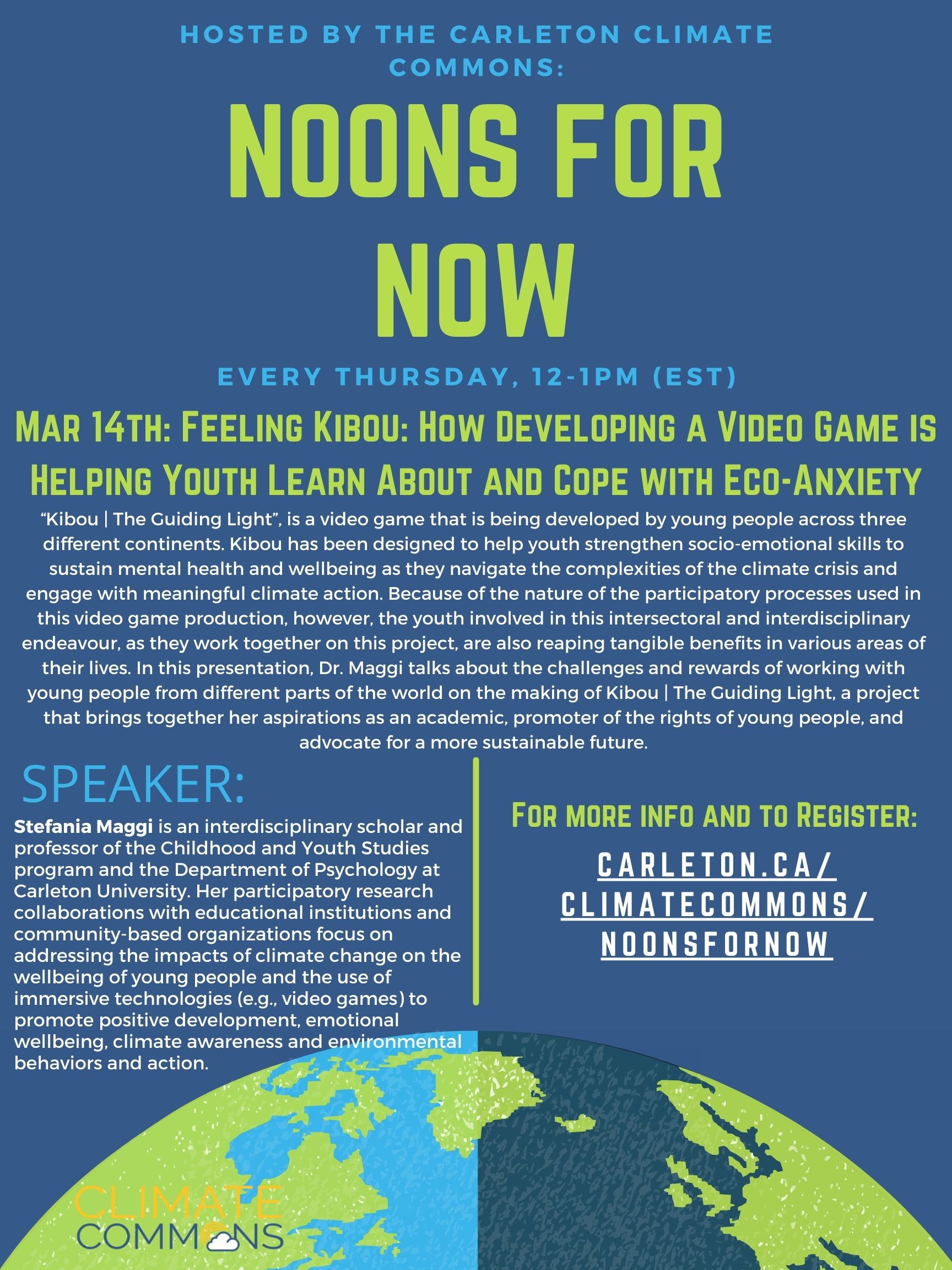
Kibou | The Guiding Light is a video game that is being developed by young people across three different continents. Kibou has been designed to help youth strengthen socio-emotional skills to sustain mental health and wellbeing as they navigate the complexities of the climate crisis and engage with meaningful climate action. Because of the nature of the participatory processes used in this video game production, however, the youth involved in this intersectoral and interdisciplinary endeavour, as they work together on this project, are also reaping tangible benefits in various areas of their lives. In this presentation, Dr. Maggi talks about the challenges and rewards of working with young people from different parts of the world on the making of Kibou | The Guiding Light, a project that brings together her aspirations as an academic, promoter of the rights of young people, and advocate for a more sustainable future.
Speaker: Stefania Maggi is an interdisciplinary scholar cross appointed between the Childhood and Youth Studies program and the Department of Psychology at Carleton University where she teaches course relevant to the psychology of climate change, education for sustainable development, nature connection, and human development. Her participatory research collaborations with educational institutions and community-based organizations in Canada and abroad focus on addressing the impacts of climate change on the wellbeing of young people and the use of immersive technologies (e.g., video games) to promote positive development, emotional wellbeing, climate awareness and environmental behaviors and action.
Dr. Maggi is the founder of Mochi4ThePlanet, a youth-centered movement promoting coping with climate change and emotional resilience. She is also an executive member of the Landon Pearson Centre for the Studies of Childhood and Children’s Rights; a member of the Pickering Centre for Human Development, the Climate Psychology Alliance North America, the Child Rights Academic Network, and Teachers for Future International.
Actions
- Be conscious of the types of video games we play and the environmental influences in them
- Think about how collaboration can provide new opportunities or new outcomes
- Consider how the arts and technology can come together to form new positive representations of the climate crisis
- Think about different target audiences> how can video games reach a certain age group?
Resource List
The following is a list of resources recommended by attendees at our event.
Mochi4ThePlanet Websites:
- https://mochi4theplanet.com/
- https://mochi4theplanet.com/our-books/
- https://www.youtube.com/@mochi4theplanet
Other Websites:
- https://www.climatementalhealth.net/resources
Video Games:
- Zelda Series
- Terra Nulius
Articles:
- Video Games Are Finally Waking Up to Climate Change
-
Can video games change people’s minds about the climate crisis?
Journal Articles:
- Where are all the climate change games? Locating digital games’ response to climate change
- Confronting Ecological Monstrosity Contemporary Video Game Monsters and the Climate Crisis